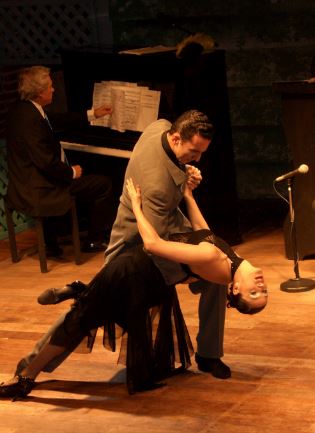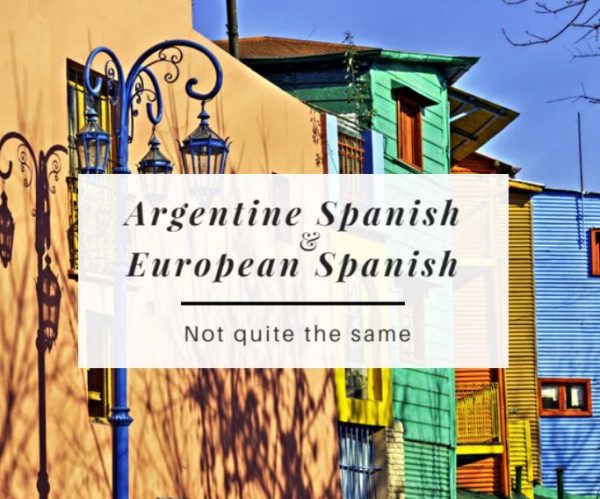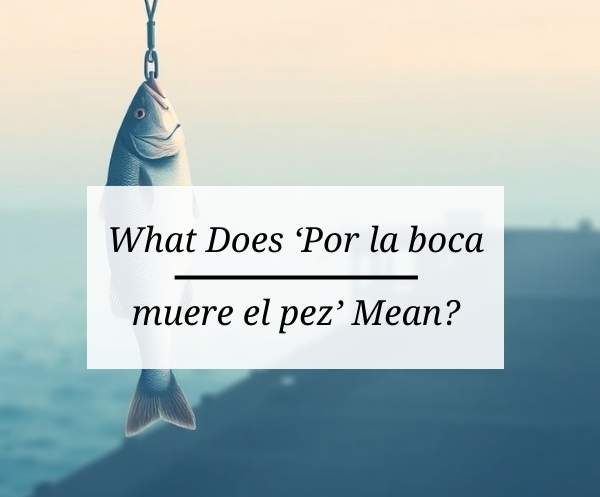The Argentinian Accent
The accent, or “el acento”, in Spanish, is one of the biggest differences between the Spanish spoken in Argentina and other variations of Spanish. This is not very different from what happens in English or in other languages. After all, you can easily find differences between the pronunciation of a word in the US and its pronunciation in Australia; so this is also the case for Spanish, a language that is spoken in more than 20 countries around the world.
Influences of Argentine Spanish
Italian
Those who speak Italian dialects, mainly Neapolitan, will easily notice the similarities between the Argentine and the Italian accents. One of the major causes for this was the large Italian immigration to Buenos Aires, the capital of the country.
In other parts of the country, the arrival of immigrants from other European regions also influenced the accents in these places, that’s why the Spanish spoken in Buenos Aires, also known as Rioplatense, can be very different from the Spanish spoken in other cities and provinces of Argentina, which had a stronger influence of the French, for example.
Brazilian Portuguese
The proximity to Brazil and the close relations of Spanish and Portuguese as languages also influenced the Argentinian accent. Some words ended up being fully incorporated into the slang and other words being pronounced very differently from what one would hear in Spain. Examples of this in the Spanish of Argentina are words that use the letters “ll”, such as “lluvia” which are pronounced like the “j” sound of the Portuguese, or “sh”, resulting in “shuvia”. Meanwhile, in most other countries of Latin America, those two letters usually sound more like “dj”.
 Argentina, white and blue; Brazil, green and yellow
Argentina, white and blue; Brazil, green and yellow
The Voseo in Argentina
The main difference between the Spanish spoken in Argentina, mainly the Rioplatense dialect, and other dialects of Spanish is a syntactic rule. In Argentina, they use “voseo” instead of “tuteo”.
The “voseo” is the use of the pronoun “vos” for verbal forms in the second person. The “tuteo”, most commonly used in Spain and the rest of Latin America is the pronoun “tú” along with verbs in the second person.
Why do Argentines say “vos” instead of “tú”?
The etymology of the word “vos” tells us that it is a contraction of a longer expression: “vuestra merced”, an equivalent and more formal way of saying “tú” or “usted” (you), and which is closely related to the plural pronoun “vosotros” in Spanish, and singular “você” in Portuguese.
This pronoun was used by the Spanish at the beginning of the colonization of the American continent. But it fell into disuse and was gradually replaced by the use of “tú”. However, in more isolated parts of the empire, such as Buenos Aires, they remained to use the form “vos” until today.
Examples of Voseo and Tuteo
| Verbo | Tuteo | Voseo |
|---|---|---|
| Ser | Tú eres | Vos sos |
| Estar | Tú estas | Vos estás |
| Tener | Tú tienes | Vos tenés |
| Querer | Tú quieres | Vos querés |
| Hacer | Tú haces | Vos hacés |
| Decir | Tú dices | Vos decís |
| Hablar | Tú hablas | Vos hablás |
It is also worth mentioning that the Argentines (as well as all other Latin American Spanish speakers) practically abolished the use of the form “vosotros” meaning the plural “you”. The use of the pronoun “vosotros” is now almost restricted to Spain. When using the second person plural, Latin Americans use “ustedes”, which in Spain has a formal connotation. Still, “usted” in the singular form is used in formal situations in Latin America
“Vesre”: Changing the order of syllables
The Lunfardo also borrows words from “Vesre”, which is the habit of changing the order of syllables in a word. Thus, one uses “jermu” instead of “mujer”; “rope”, instead of “perro”; “ñoba” means “baño”; and “garpar” is used instead of “pagar”.
The Lunfardo in Tango
This musical style so characteristic of Argentina gradually started to incorporate certain words and expressions from the Lunfardo spoken in the streets. First, in the titles of the songs; then in the lyrics too.
One of the great reasons for the appropriation of the Lunfardo by the general population was the Tango.
 Argentine Tango
Argentine Tango
Lunfardo: the Argentine Slang
Lunfardo can be defined as a very popular Argentinean way of speaking. A kind of slang that was born in the form of encoded messages between marginal peoples, such as jail inmates and brothel-goers, and mixed with the Castilian spoken in Buenos Aires over the years.
The Lunfardo is a very characteristic form of speech of the Argentineans that was forged by the immigrants - especially Italian and Spanish - that arrived en masse to the country during the second half of the twentieth century. Over time, it incorporated expressions and words of indigenous, African and “gaucho” origin - a term referring to the customs and traditions of the people engaged in livestock activities in the regions of the Pampas, which have developed over the centuries a culture of its own, often portrayed in the mainstream literature and becoming a big part of the language that today is used by much of the population.
Examples of Lunfardo
In any case, this new way of communicating was a mix of expressions from different backgrounds. The words laburar (to work) and fiaca (laziness), for example, come from Cocoliche, a kind of slang that mixed Spanish with Italia, and was spoken by Italian immigrants, who in many cases did not speak Spanish.
The word p_iola_ (smart, cunning) comes from the gauchesco argot. Quilombo (disorder, confusion) comes from the African Bantu, according to the Etymological Dictionary of Lunfardo. Morfar, which means to eat, comes from the French slang morfer. From that same word derives the word morfi (food).
Here are some of the most well-known words and expressions of Lunfardo.
- Atorrante: shameless, vagrant, lazy.
- Boludo: stupid, moron. It also serves to get the attention of another person with whom you have a certain degree of intimacy (“Che, boludo, ya cenaste?”).
- Bondi: bus
- Bronca: anger
- Cana: Police, policeman
- Chabón: guy
- Chamuyar / chamullar: to chat up
- Chanta: a person of little credibility
- Cheto: fancy
- Chirusa: dirty woman
- Engrupir: to deceive
- Faso: cigarette
- Garca: unscrupulous person
- Gato: prostitute
- Guita: money
- Groso: great
- Mina: woman
- Mango: currency
- Papafrita: idiot, “boludo”
- Perejil: unimportant, insignificant person
- Pibe: boy
- Posta: accurate, real





